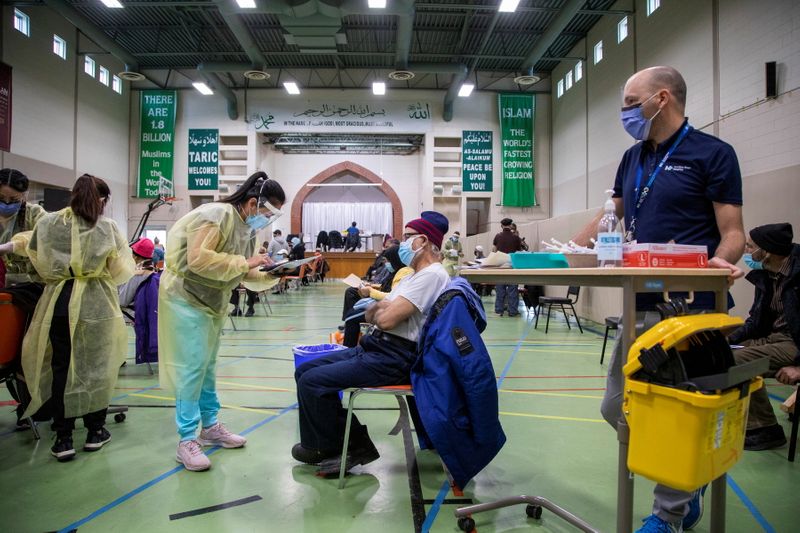By Rod Nickel
WINNIPEG, Manitoba (Reuters) - Canada's Health Ministry said on Wednesday it would limit the use of two types of crop chemicals that have been linked to deaths of aquatic insects that are food for fish and birds.
Health Canada's multi-year review of clothianidin, made by Bayer AG (DE:BAYGN), and thiamethoxam, a Syngenta Corp product, found that some applications pose risks to the insects. The ministry restricted some uses for onion, lettuce, blueberry and potato crops.
Neonicotinoids are a class of pesticides that farmers have sprayed on crops since the 1990s.
Health Canada made an initial decision in 2018 to ban all outdoor uses of clothianidin and thiamethoxam, before carrying out further consultations.
It has since determined that some uses are not risky, provided that farmers take other precautions, such as reducing application rates and increasing buffer zones around sensitive areas, said Scott Kirby, director-general of environmental assessment of Health Canada's Pest Management Regulatory Agency.
The compromise fails to protect wildlife and ecosystems, environmental groups said.
"It is outrageous that Canada’s pesticide regulator is not delivering on its own proposed ban," said Beatrice Olivastri, Chief Executive of Friends of the Earth Canada, adding that European countries have stopped using the chemicals.
Companies that register the chemicals have two years to adjust directions on labels.
The changes are similar to those under consideration by the U.S. Environmental Protection Agency, Kirby said.
Canada previously imposed restrictions on neonicotinoids to protect bees in 2019.
Growers of corn and soybeans can keep using the products with additional limits on applications. Health Canada did not impose significant changes for western canola growers, Kirby said.
A Bayer spokeswoman said the company needed time to review the decision. Syngenta could not be reached.

Health Canada is reviewing a third neonicotinoid approved for agricultural use. It intends to release its decision on imidacloprid, which Bayer also produces, later this year.